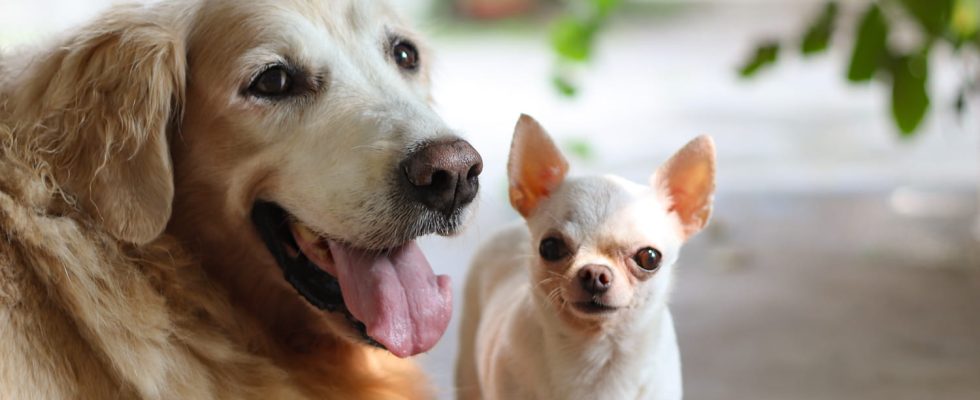No, big dogs do not age faster than small ones! A recently published scientific study provides a new answer to this phenomenon. The man is involved…
It is well known that the life expectancy of dogs varies according to the breeds, and in particular the size of the animal. Thus a small Yorkie of 3 kilos can live up to 16 years while the Great Dane, a breed that can exceed 90 kilos, has a life expectancy of only eight to ten years. Logic ? Not necessarily if we rely on other animal species such as the elephant… Many theories have been put forward over the years but a latest study carried out by scientists from the University of Adelaide in Australia could well to have settled the question for good!
According to this scientific study published on The American Naturalists, small breeds of dogs like Chihuahuas have a longer life expectancy than large breeds like Great Danes. But what is the reason for this size discrimination? Premature aging? Not necessarily ! If previous studies had come to the conclusion that large dogs age faster than small dogs, which means that they reach their “middle” age earlier than small dogs, researchers have finally found another cause: as As the dog breed’s average body weight increases, cancer rates also increase…
To reach this conclusion, the researchers analyzed the common causes of death in 164 different breeds of dogs, animals of all sizes. Verdict? Larger animals are more susceptible to contracting cancer. The possible reason would be linked to breeding and natural selection over the centuries, the natural defenses against cancer being probably less strong in breeds of “large” dogs whose breeding has been intensive over the centuries to allow it is up to man to use it for hunting or herding cattle.
These ‘giant’ dog breeds have not seen immune defenses evolve at the same rate as their growth. “This theory is based on the principle that if you invest most of your energy in growing, you cannot also invest in cellular repair and defenses against cancer”, justifies Dr. Jack Da Silva, one of the initiators of the study. The researchers now hope that their discoveries will also be used to improve the health of humans. “Dogs represent a a good model for studying aging in humans”, concludes Dr. Jack Da Silva.
